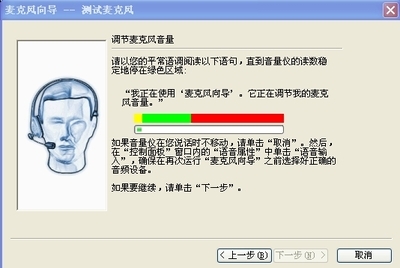PRE-READING QUESTIONS
1. What language do you speak at home?
2. When did you start to learn English?
3. Do you ever mix your native language withEnglish when you are speaking?
4. How many people around the world do youthink speak English as a second language?
5. Have you ever heard the terms “Spanglish”or “Hinglish”? What do you think these terms mean?
6. What is the meaning of globalization?
English Globalization
Today, the English language is spoken as a second language bymore people than ever before. In 2006, for every native Englishspeaker, there were estimated to be three non-native Englishspeakers.
English is now the language of business, computer technology,and skilled employment worldwide. Currently, hundreds of millionsof people, especially in China and India, are learning to speakEnglish, many of them in small local language schools. Expertspredict that 3 billion people will speak English as a secondlanguage by 2016.
Many non-English-speaking countries now start to teach theirchildren English in school at a young age. This not only helps thechildren to learn English but also to get better jobs when they areolder. A country that has workers who have both English andcomputer skills is better able to compete in the globalmarketplace.
English is also the language of the Internet. Many people work inthe field of Internet technology, while many others use theInternet to help them do their jobs or to improve their Englishskills.
As more non-native speakers have learned English, words fromlocal languages have become mixed with it. For example, Spanglish,a mix of Spanish and English, is now spoken in the United Statesand Mexico. Hinglish, a mix of Hindi and English, is becoming morecommon in India.
In fact, some experts think that people could one day speak onekind of English at home, another at work or school, and a thirdwhile traveling or talking to international visitors. Other expertsbelieve that countries should encourage local versions ofEnglish.
Some native English speakers are upset at these changes.However, they will have to adapt to them because the globalizationof English has become a fact of life. The highly lucrative Englishas a second language teaching industry and the demand for nativeEnglish speakers will continue to grow for some time tocome.
COMPREHENSION QUESTIONS
1. In 2006, what was the ratio of non-nativeEnglish speakers to native English speakers?
2. In what fields or industries is Englishspoken around the world?
3. How many people will speak English as asecond language by 2016?
4. Why are many non-English speaking countriesstarting to teach their children English at a young age?
5. Give two examples of languages that havestarted to mix with English?
VOCABULARY REVIEW
A. Match the words on the left with thecorrect meaning on the right.
_____ 1.nativea) worldwide
_____ 2.estimateb) change to fit a new use or situation
_____ 3.skillc) in the area
_____ 4.currentlyd) give support or confidence to; help
_____ 5.experte) give an idea of the approximate size, number,etc.
_____ 6.predictf) profitable; bringing money
_____ 7.competeg) now; at the present time
_____ 8.globalh) a form that is different from the original
_____ 9.locali) born in or belonging to a certain place
_____ 10.encouragej) ability to do something
_____ 11.versionk) say what will happen in the future
_____ 12.adaptl) person with special knowledge or skill
_____ 13.lucrativem) try to win or be better than someone else
B. Choose the correct word from the leftcolumn above to complete the followingsentences.
1. They __________________________ live inCanada, but they are planning to move to Englandsoon.
2. When you move to a new country, you have to__________________________ to new customs.
3. Thousands of athletes from around the world__________________________ in the OlympicGames.
4. At first he lost money in his business, butnow it is becoming very__________________________.
5. John has become a very good student becauseall his teachers __________________________ him to work hard.
DISCUSS IT
Work with a partner or in small groups. Discuss the followingquestions.
1. At what age do you think children should begin to study asecond language in school?
2. What do you think is the best way to teach English tochildren?
3. Why do you think English has become the globallanguage?
4. Besides business and technology, what other industriesfunction primarily in English?
5. How is the spread of English throughout the world affectinglocal languages and local cultures?
6. What can countries do to preserve their locallanguages?
7. Do you think it is important for English language teachersaround the world to try to maintain a standardized form of English?Why or why not?
8. In what ways do languages change throughout time? Give someexamples.
9. Nowadays, many young people are traveling to foreigncountries to teach English as a second language. Do you think thiswould be a good job? Explain your answer.
WRITE IT
Choose one of the questions above and write a paragraph statingyour own opinion.
__________________________________________________________________________________________
__________________________________________________________________________________________
__________________________________________________________________________________________
__________________________________________________________________________________________
__________________________________________________________________________________________
__________________________________________________________________________________________
__________________________________________________________________________________________
__________________________________________________________________________________________
__________________________________________________________________________________________
DEBATE IT
Below are two topics to debate in small groups or pairs. Yourteacher will tell you if you will be debating for or against theidea. You will have ten minutes to prepare your arguments. (Yourteacher will explain the rules of debate before you begin.)
Topic #1:
With English becoming the global language, the loss of nationallanguages and cultures is inevitable.
Topic #2:
In order to facilitate effective international communication,the mixing of local languages with English should be discouragedand teachers everywhere should use one global standard for Englishlanguage instruction.
Notes:
__________________________________________________________________________________________
__________________________________________________________________________________________
__________________________________________________________________________________________
__________________________________________________________________________________________
__________________________________________________________________________________________
__________________________________________________________________________________________
__________________________________________________________________________________________
__________________________________________________________________________________________
__________________________________________________________________________________________
__________________________________________________________________________________________
__________________________________________________________________________________________
__________________________________________________________________________________________
__________________________________________________________________________________________
__________________________________________________________________________________________
Comprehension
1. In 2006, for every native English speaker, there wereestimated to be three non-native English speakers.
2. English is now the language of business, computer technology,and skilled employment worldwide.
3. Experts predict that 3 billion people will speak English as asecond language by 2016.
4. This not only helps the children to learn English but also toget better jobs when they are older. A country that has workers whohave both English and computer skills is better able to compete inthe global marketplace.
5. Spanglish, a mix of Spanish and English, is now spoken in theUnited States and Mexico. Hinglish, a mix of Hindi and English, isbecoming more common in India.
Vocabulary
A. Match the words
1.i2.e3.j4.g5.l6.k7.m8.a9.c10.d11. 12.a13. f
B. Choose the correct word
1.currently2.adapt3.compete4.lucrative5. encourage
Download (PDF Version)
 爱华网
爱华网


